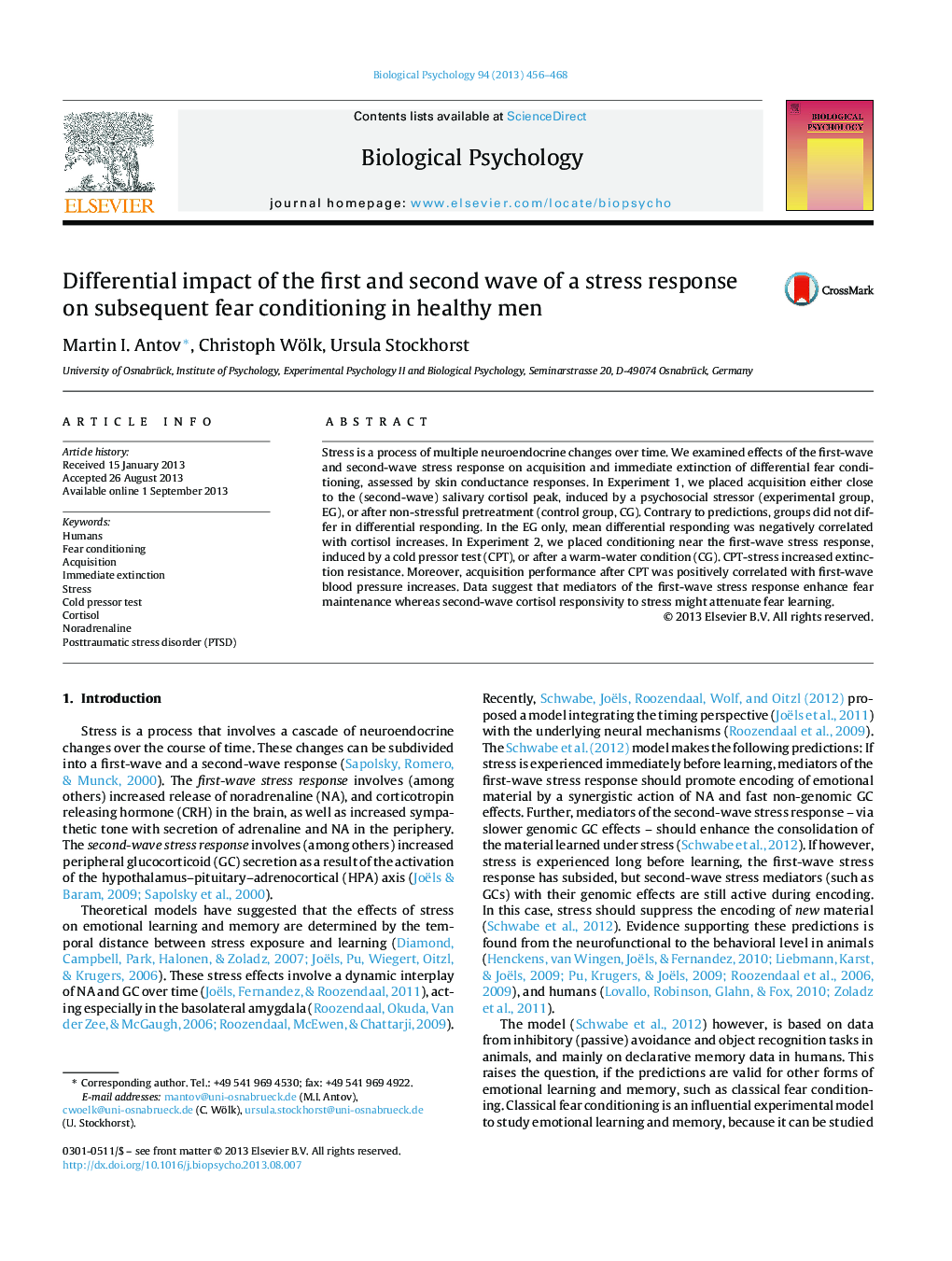| Article ID | Journal | Published Year | Pages | File Type |
|---|---|---|---|---|
| 920960 | Biological Psychology | 2013 | 13 Pages |
•We examine effects of the early vs. late stress response on fear conditioning.•In healthy men, learning in the peak of the late stress response had no effect.•Here however, cortisol increase was negatively associated with learning performance.•Learning near the early stress response led to higher extinction resistance.•Here, sympathetic activity was positively associated with acquisition performance.
Stress is a process of multiple neuroendocrine changes over time. We examined effects of the first-wave and second-wave stress response on acquisition and immediate extinction of differential fear conditioning, assessed by skin conductance responses. In Experiment 1, we placed acquisition either close to the (second-wave) salivary cortisol peak, induced by a psychosocial stressor (experimental group, EG), or after non-stressful pretreatment (control group, CG). Contrary to predictions, groups did not differ in differential responding. In the EG only, mean differential responding was negatively correlated with cortisol increases. In Experiment 2, we placed conditioning near the first-wave stress response, induced by a cold pressor test (CPT), or after a warm-water condition (CG). CPT-stress increased extinction resistance. Moreover, acquisition performance after CPT was positively correlated with first-wave blood pressure increases. Data suggest that mediators of the first-wave stress response enhance fear maintenance whereas second-wave cortisol responsivity to stress might attenuate fear learning.
